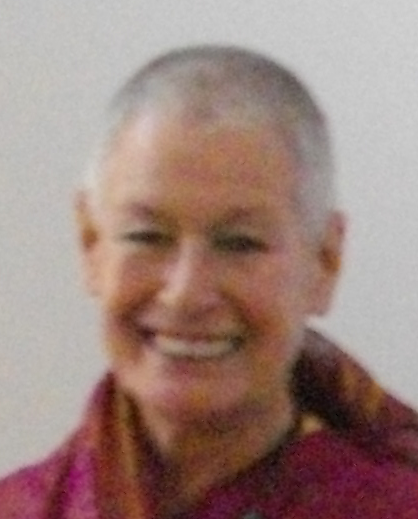 The Woodpecker's Song
The Woodpecker's Song
About the Buddha Nature (tathagatha-garbha in Sanscrit)
 For a Zen Buddhist practitioner it is of great help and hope to know that every living being has enclosed in it a Buddha Nature, an enlighted nature making it possible for everyone to realize the state of an enlightened being such as a Buddha. That nature of Buddha is described in 4 qualities:
For a Zen Buddhist practitioner it is of great help and hope to know that every living being has enclosed in it a Buddha Nature, an enlighted nature making it possible for everyone to realize the state of an enlightened being such as a Buddha. That nature of Buddha is described in 4 qualities:
Pure (not polluated by emotional negativity and cognitive obstacles), luminous-clear, knowing, being present at all times.
In a Zendo – a meditation hall of a Zen centre – those 4 qualities are daily recalled in the recitation "Enmei jikku Kannon gyo", dedicated to Kaneon, the Japanese name of Avalokiteshvara, the Bodhisattva of Compassion: GO - RAKU - GA - JO.
Remember, remember, and be joyful and selfconfident, you too have the Buddha Nature from the beginning, the Enlightenment is in you, nowhere else, and by nobody else.
Sing it as a mantra GO - RAKU - GA - JO, give it as a present, express it in your face, in your voice and your embrace, in your home interior, spread this inner light in you to the well being of people in contact with you. Since the beginning the seed of the Enlightenment is embodied in you, all is present in you to become a Buddha. The whole work to do is to abandon the useless baggage of views, opinions, negative emotions.

A Zen monk of Ancient China described the Buddha Nature in two different states of mind of a Buddhist practioner, that of a Hearer’s (Shravaka in sanscrit), the lower level of practice which is ordinarily the level that each of us starts to practice, and that of a Bodhisattva, the more engaged level of a practioner now turned to benefit others and giving his support and help to others in many ways.
In the first case the Monk compared the inner perception of one's Buddha Nature "as a full moon in the middle of the night", which is in the Japanese sky astonishingly brighter and clearer than in the European sky. In the second case, the case of a Bodhisattva, the Zen monk described the Buddha nature as "a sunlight in the middle of the day". Then comes his crucial question to the Zen Master:
concludes this Dharma case, from the Japanese koan anthology "Tetteki Tosui".
For Europeans these methods of trying to awake the dreaming practitioner may appear violent methods, but this is a cultural matter and the Chinese zen master used the methods inherited from the Chinese–Japanese cultural background.
This zen woodpecker would use another way adapted to the European culture: She would leave abruptly the room, leaving the room without a word, leaving the student alone – with his question. Some other zen woodpeckers would abruptly throw the Koan book of the student through the open window. without a word. Different cultures, different reactions, same purpose: a help.
A quick and unexpected reaction, wordless operated may help to "awaken" the person and make realize one’s own situation.
Or it may not help, as it is in this case: the monk kept going to another master.
Nothing changed in the human reaction since the Tang time of Ancient China. Nowadays a number of European Buddhist students wander from one meditation centre to another, to one popular Buddhist teacher to another one, experiencing the different leading persons of different Buddhist schools, experiencing here and there a quick reaction of a Buddhist teacher, mostly disagreeable and then memorable on the anedoctic level. Still that famous popular teacher in most cases reveals himself unable to help them to come out of their sleepy existence.
The ancient sutras report that even Shakyamuni Buddha could not convince certain assemblies to join his movement. They were too accustomed to their sleepy existence. Indeed, a push can be given, but the movement of your mind to come out of your dreams and illusions depends on you and on you only.
See you the next woodpecker's song in March, hoping in my heart that you will not turn the question here above to yourself instead of addressing it to someone else: How do I see the Buddha nature working in me?
Going on woodpecking on the Dharma tree and greeting you heartfully,
A woodpecker without name and rank
